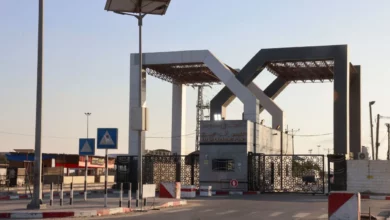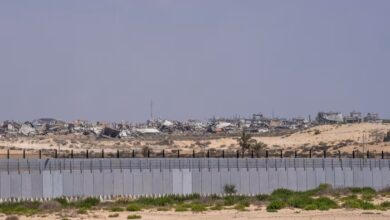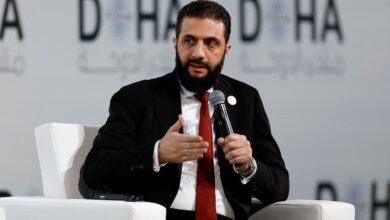
In an opinion published in the Washington Times, Abdelatty said “We must collectively work against such a scenario and continue to pursue the two-state solution that offers peace and security for both peoples.”
He added: “I assumed office as Egypt’s minister of foreign affairs at a critical juncture. The region is encountering an unprecedented combination of challenges. The decisions taken today to address these crises will define the trajectory of the Middle East for decades to come.”
While the Middle East has historically been a complex region marred with intrastate conflicts, historical feuds and political disputes, the region has hardly seen anything equivalent to what we witness today, he said.
Regrettably, Israel continues to espouse the same shortsighted and misguided approach that has gripped its security doctrine for decades: that overwhelming force and coercion will guarantee its security and will eventually culminate in despair among Palestinians to exercise their right to self-determination. It has repeatedly embraced this doctrine despite not yielding durable results, he further noted.
For decades, it resorted to continued occupation, annexation, targeted assassinations, use of force and uninterrupted construction of illegal settlements across the occupied Palestinian territories with constant acts of violence from settlers, he said.
To achieve peace and security, we must embrace a well-defined and calibrated process to move Palestinians away from despair and misery and offer alternatively and ultimately a future of hope and dignity — a future where they can freely govern in a sovereign state of their own, he added.
As such, we must address the root cause of the conflict and not any symptom. Israel’s occupation of the Palestinian territories must end, and Palestinians must exercise their right to self-determination in full conformity with the UN charter and international law, he said.
History is repeating itself. We are witnessing a recurring policy of territorial violations, targeted assassinations and destruction of public infrastructure. None of this worked in the past, and it won’t in the future, he underlined.
He said the use of force does not serve the cause of peace, nor does it guarantee security. On the contrary, it generates sentiments of vengeance, enmity and reprisal. It radicalizes emerging generations. It galvanizes recruitment for extremist organizations. It destroys the prospects for peaceful coexistence.
Palestinian national sentiments will not wither away or fracture because of repeated provocations. Palestinians would have relinquished their aspirations decades ago if that were the case. History offers valuable lessons, but only if there is a willingness to learn them, he made it clear.
He stressed “Without rigorously pursuing Palestinian statehood, the Israeli-Palestinian conflict will remain locked in perpetual and vicious cycles of violence and counterviolence that will imperil both Palestinians and Israelis. We must collectively work against such a scenario and continue to pursue the two-state solution that offers peace and security for both peoples. That is the only viable option if we want to spare future Palestinian and Israeli generations the scourge of war and terror.”
He said “Egypt continues to work relentlessly to that end. We were the pioneering nation to pursue peace in the Middle East and the first Arab state to sign a peace treaty with Israel. But this milestone was possible only because of bold, visionary leadership that transcended the politics of the moment and offered a powerful, long-lasting message that blended humanity with justice to advance peace and security for all.”
He concluded by saying “Generational healing between Palestinians and Israelis is indeed possible, but only when both peoples enjoy dignity and independence in their own state.”




